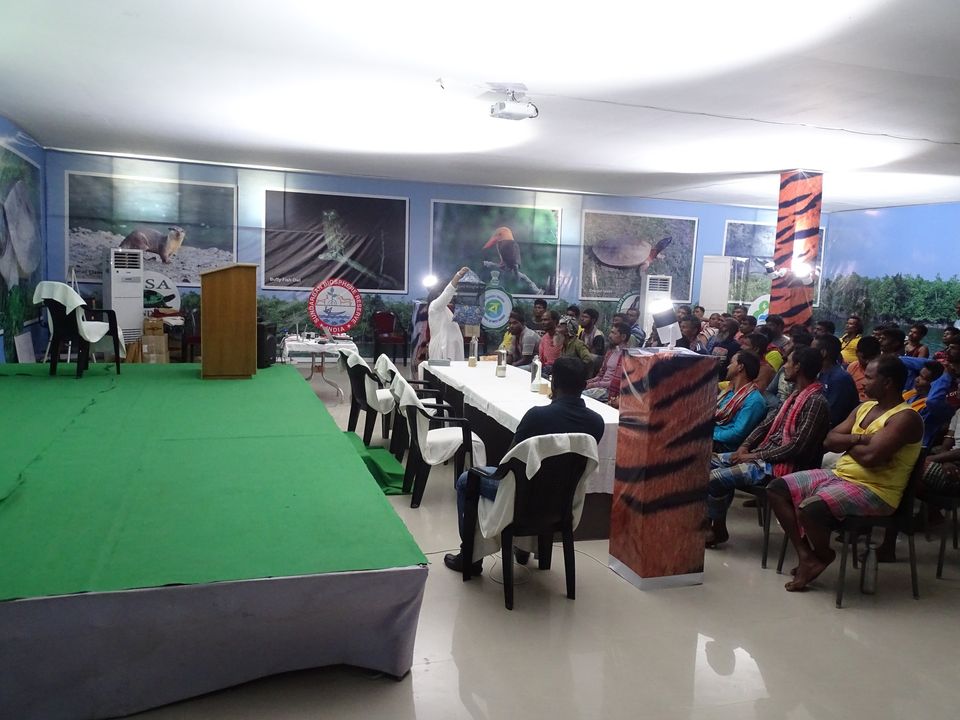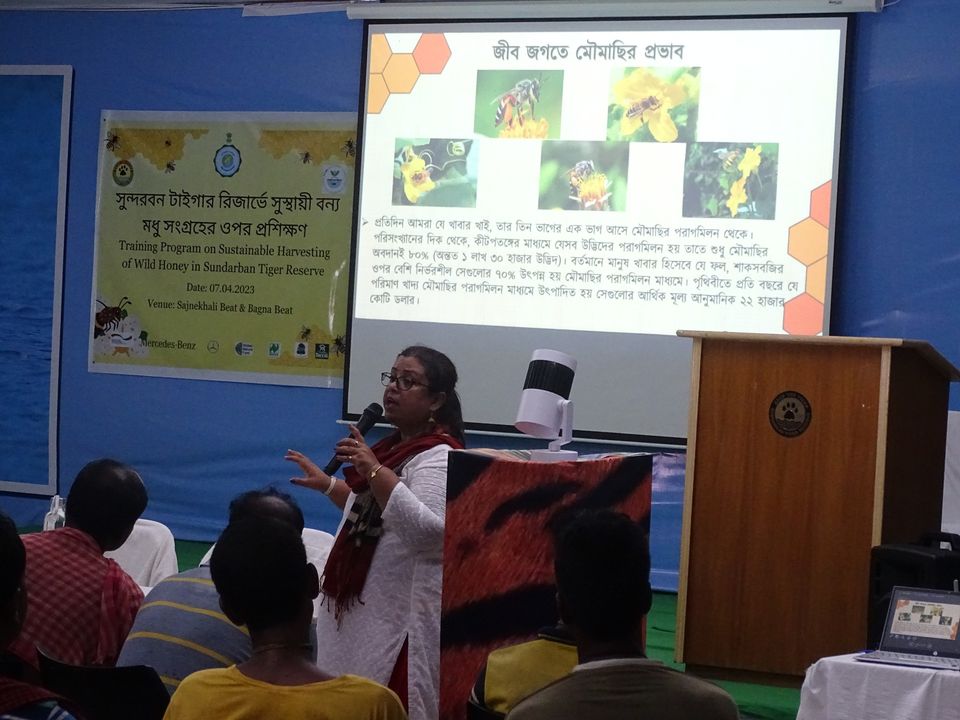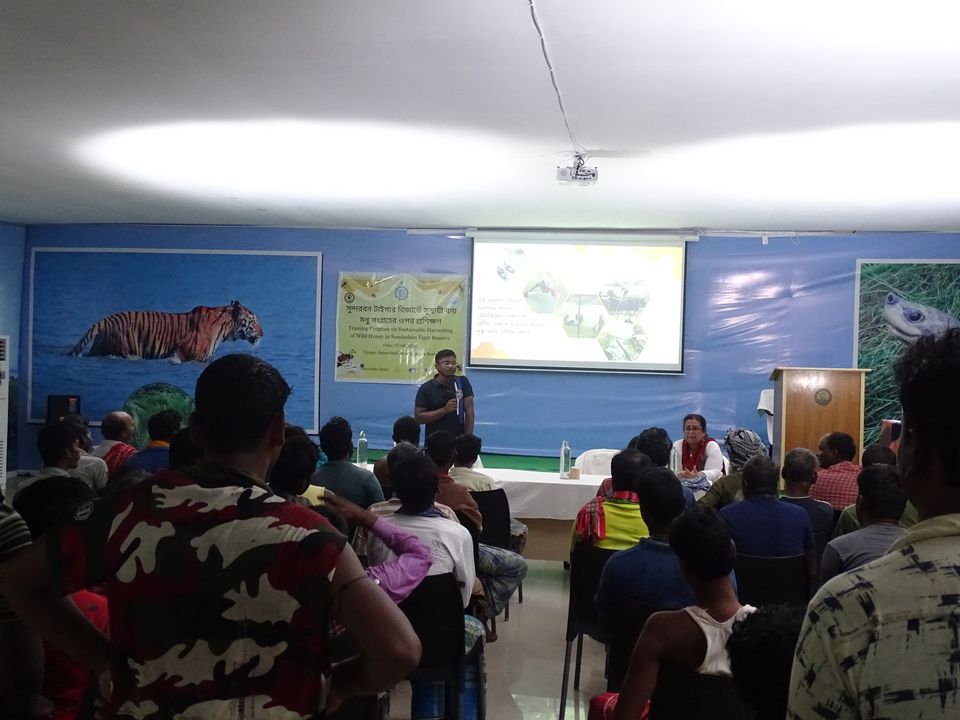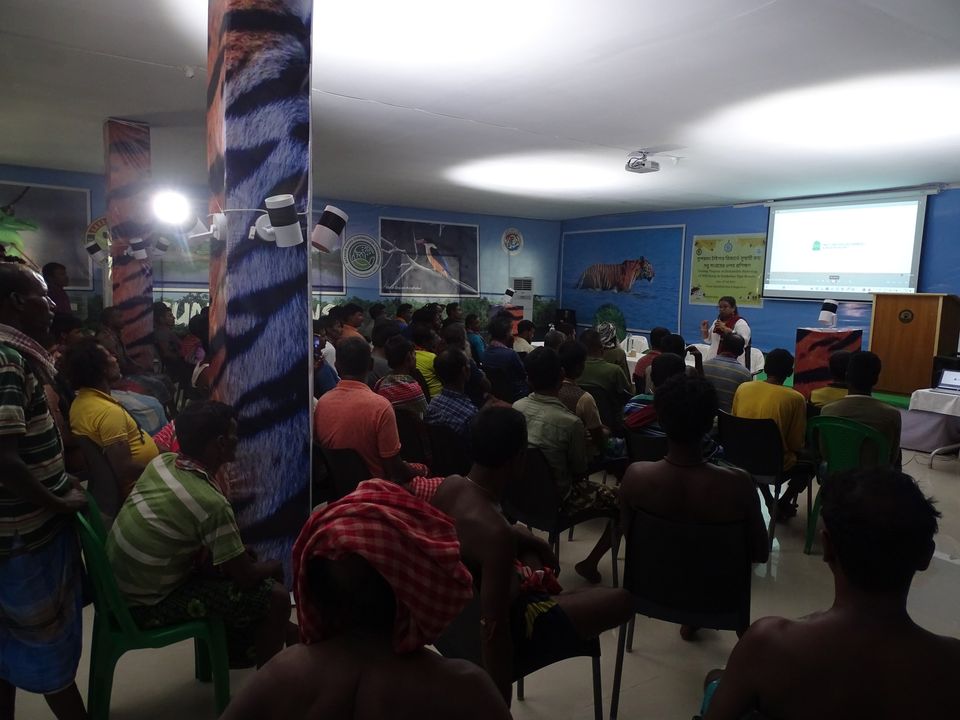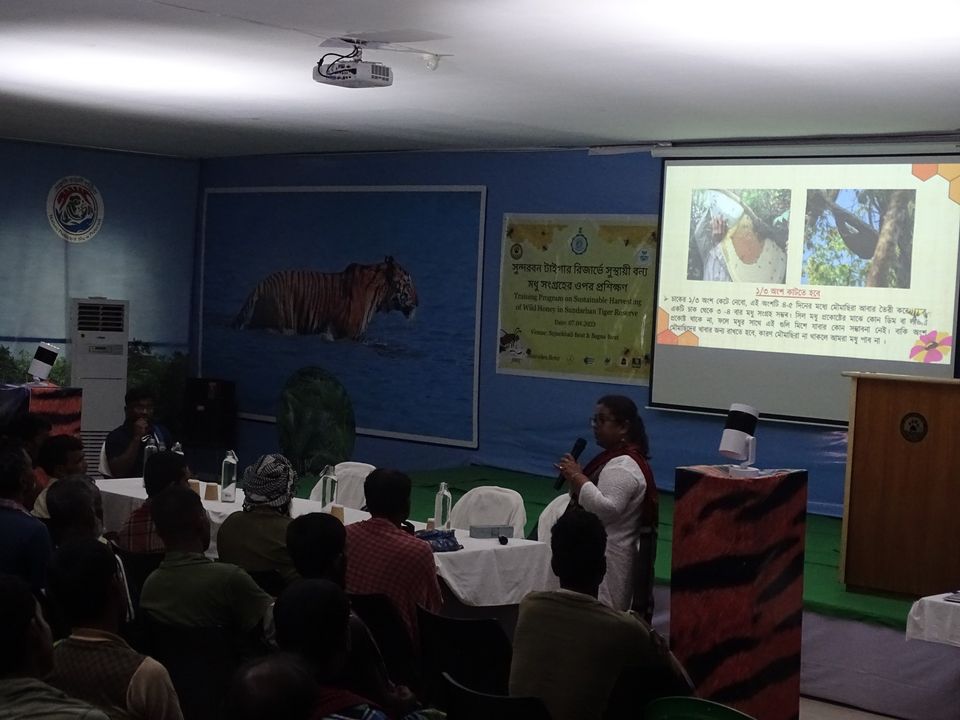Training program on Sustainable Harvesting of Wild Honey
10 - Apr - 2023
Honey collection is a vital mangrove resource-dependent livelihood for the coastal community of the Indian Sundarban. However, honey collectors harvest wild honey in an unsustainable manner which might be attributed to the time constraints, challenging terrain, and life-threatening risks they have to undertake during their venture. Sometimes, in the quest for honey collection, they may even destroy the entire honeycomb which jeopardizes the honey bee colony, the quality of the collected honey, and the chance for the future honey harvest. Thus, to capacitate the honey collectors on the sustainable harvest of wild honey in the Indian Sundarban Tiger Reserve, the Nature Environment and Wildlife Society (NEWS) partnered with the Forest Department, Government of West Bengal to impart a one-day training on “Sustainable Harvesting of Wild Honey in Indian Sundarban Tiger Reserve” on 7th April 2023 at Sajnekhali and Bagna under the Sajnekhali and Basirhat Range office of Indian Sundarban under the SAIME project. Around 600 wild honey collectors also known as “Moulis” attended these 2 training programs. Dr Chandrima Sinha and Udayan Sutar from NEWS described the importance of sustainable honey collection and also discussed honey collection methods that will ensure the sustainability of honey harvest and also maintain the quality of the collected honey. Mr Justice Jones, Deputy Field Director of Sundarban Tiger Reserve, interacted with the honey collectors and addressed their problems in the training program. NEWS also handed over rubber gloves to the Forest Department which will be given to the honey collectors at the time of permit distribution.
